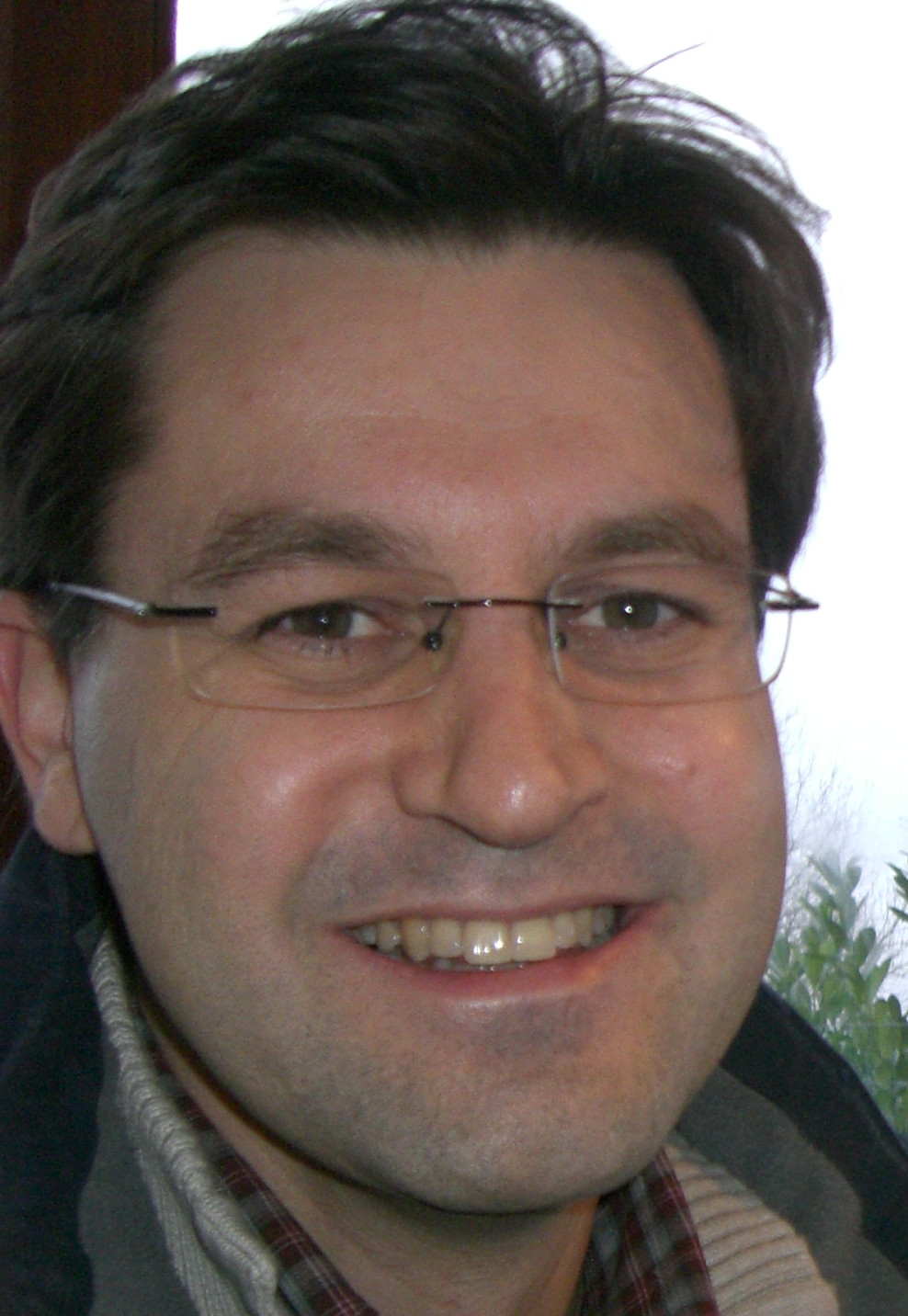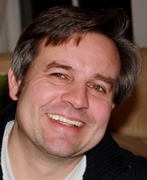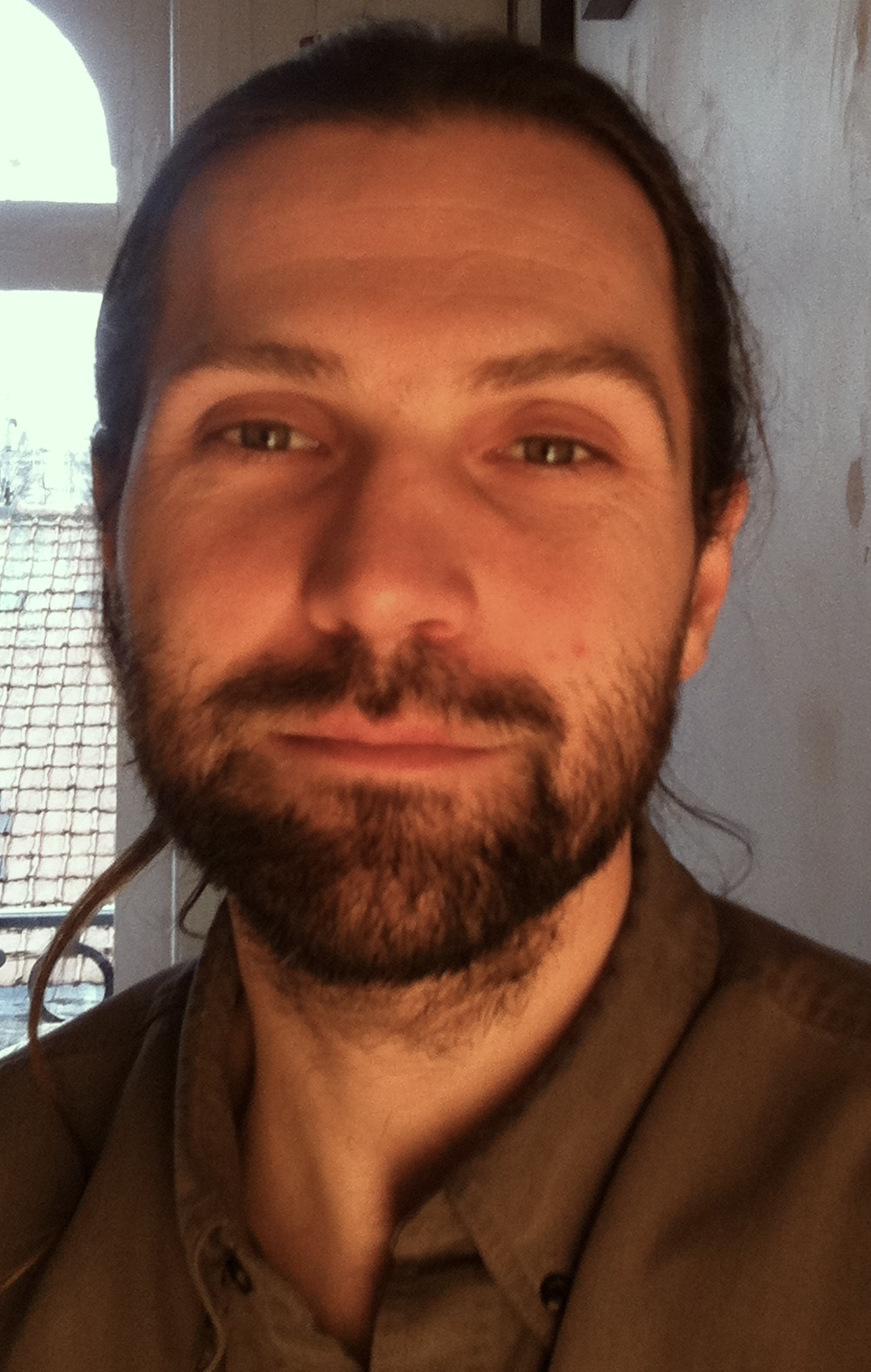Invited talks and Tutorials
Invited talks and tutorials have always been an important way to add value to the LION conference, not only for the presentations but also because of the interactions during the event.
Plenary Speakers Invited talks

David Corne
Professor, Heriot-Watt University, UK
Title of the Talk:
Psychic machines: mind-reading with machine learning
Abstract:
We can now access, as well as generate for ourselves, increasing amounts of datasets that relate human activity to
neural, neuromuscular or physiological signals. By building predictive models from such data, this gives rise to many exciting
possibilities, both in terms of applicatons and in terms of gaining insight into how the brain works. One area of particular interest
is that of predicting future mental/physical states in advance. This could relate to either intentional or unintential events; e.g.
predicting that a standing subject is just about to start walking (intentional, hopefully), or predicting that a subject will shortly
suffer an epileptic seizure (unintentional, clearly). In this talk I will describe how we harnessed data, and developed a set of
general approaches to feature engineering, feature selection and learning, to develop predictive models that have very promising
results for at least two such applications. The talk will focus on what I think are the main lessons for learning and optimization
researchers: namely, good results is 95% feature engineering, and 5% learning/optimization heroics. However, to be really
effective, the former 95% may itself involve intelligent use of learning and optimization.
BIO:
Prof. David Corne leads the Intelligent Systems Lab at HWU Dept of Computer Science (HWCS), is the HWCS Director of Enterprise, Impact and Innovation, and co-leads the Data Science theme for the Scottish Informatics and Computer Science Allaiance (around 1,000 researchers). Following degrees in Mathematics and in Artificial Intelligence, he was a Research Associate at the University of Edinburgh 1990--1997,climbed the academic ladder via the Universities of Reading and Exeter, and joined HWU in 2006. His research aims are to understand how to solve large-scale and real-world optimization and data analysis tasks. He does this by developing new algorithms, focussing on how to develop and exploit fruitful combinations of stochastic optimization and machine learning. His primary application areas are energy, environment, logistics and telecommunications, and he has worked with BAE Systems, BP, BT, Motorola, and many SMEs. He is on the editorial board of several major journals in his field, including Evolutionary Computation, Natural Computing, Theoretical Computer Science, and Applied Soft Computing.

Alex Freitas
Professor, University of Kent, UK
Title of the Talk:
Automating the Design of Decision Tree Algorithms with
Evolutionary Computation
Abstract:
Decision-tree induction algorithms are a popular type of classification algorithms in the field of data mining and knowledge discovery. Research on this type of algorithms produced many new algorithms in the last 30 years or so. However, all the decision-tree induction algorithms created over that period have in common the fact that they have been manually designed, typically by incrementally modifying a few basic decision-tree induction algorithms. Having these basic algorithms and their components in mind, we propose an evolutionary algorithm to automate the process of designing decision-tree induction algorithms. The basic motivation is to automatically create complete decision-tree induction algorithms which are tailored to the dataset being mined, trying to avoid the human biases and preconceptions incorporated in manually-designed algorithms. The proposed evolutionary algorithm is evaluated on a number of datasets, and the results show that the machine-designed decision-tree induction algorithms are very competitive with well-known human-designed decision-tree algorithms.
BIO:
Prof. Alex A. Freitas is a Professor of Computational Intelligence at the University of Kent, UK. He has a PhD in Computer Science from the University of Essex, UK (1997) and a research-oriented master’s degree (MPhil) in Biological Sciences from the University of Liverpool, UK (2011). He has (co)-authored three research-oriented books in the area of data mining and over 150 peer-reviewed papers in journals and conference proceedings. His publications have in total more than 8,000 citations in Google Scholar, with an H-index of 45. At present his main research interests are the development of new classification (supervised learning) methods for data mining and knowledge discovery, as well as the application of such methods to biology (particularly the biology of ageing) and pharmaceutical sciences.

Daniel Leberre
Professor, Artois University, Lens, France.
Title of the Talk:
From Boolean Satisfaction To Boolean Optimization: Application To
Dependency Management
Abstract:
Boolean satisfaction has received a lot of interest in the last two decades, and efficient SAT solvers are used routinely nowadays to solve large decision problems (e.g. hardware and software model checking, bug finding). Those solvers can also be used in obvious or surprizing ways to solve optimization problems. We will cover in this talk how SAT solvers are used to solve boolean optimization problems such as Pseudo-Boolean Optimization and MaxSAT. We will also present an application of boolean optimization for software dependency management, used inside the Eclipse open platform.
BIO:
Daniel Le Berre is professor of Computer Science in Artois University, Lens, France. His research interests include the practical aspects of boolean reasoning, including boolean optimization. He is the author of Sat4j, the boolean satisfaction and optimization library for the Java platform, used since June 2008 in the Eclipse open platform to power its dependency manager p2.
Remi Munos
Senior Researcher, INRIA Lille Nord Europe, France.
Title of the Talk:
The optimistic principle applied to function optimization and planning
Abstract:
will show how the "optimism in the face of uncertainty" principle developed in multiarmed bandits can be extended to address large scale decision making problems. Initially motivated by the empirical success of the Monte-Carlo tree search (MCTS) methods popularized in computer-go and further extended to many other optimization problems, I will report elements of theory that characterize the complexity of the underlying search problems and describe efficient algorithms for function optimization with performance guarantees.
BIO:
Remi Munos received his PhD in 1997 in Cognitive Science from EHESS, France, and later did a postdoc at CMU under the supervision of Andrew Moore. From 2000 to 2006 he was Associate Professor in the department of Applied Mathematics at Ecole Polytechnique. In 2006 he joined the French public research institute Inria as a Senior Researcher and co-created the project-team SequeL (Sequential Learning). His research interests cover several fields of Machine Learning including Reinforcement Learning, Optimization, and Bandit Theory.
Tutorial Speakers

Manuel López-Ibáñez
postdoctoral researcher, IRIDIA, ULB, Belgium.

Thomas Stützle
Senior research associate, FNRS-IRIDIA, ULB, Belgium.
Title of the Talk:Automatic Algorithm Configuration: From Parameter Tuning to Automatic Design
Abstract:
Most optimization algorithms, including metaheuristics and general-purpose solvers for integer or constraint programming, have many parameters that need to be properly set for obtaining the best performance on a particular problem. (Offline) Automatic algorithm configuration methods help algorithm users to determine the parameter settings that optimize the performance of the algorithm before the algorithm is actually deployed. Moreover, automatic algorithm configuration methods have the potential to lead to a paradigm shift in algorithm design and configuration because they enable algorithm designers to explore much larger design spaces than by traditional trial-and-error and experimental design procedures. Thus, algorithm designers can focus on inventing new algorithmic components, combine them in flexible algorithm frameworks, and let final algorithm design decisions be taken by automatic algorithm configuration techniques for specific application contexts. This tutorial will be divided in two parts. The first part will give an overview of the algorithm configuration problem, review recent methods for automatic algorithm configuration, and illustrate the potential of these techniques using recent, notable applications from the presenters' and other researchers work. The second part of the tutorial will focus on a detailed discussion of more complex scenarios, including multi-objective problems, anytime algorithms, heterogeneous problem instances, and the automatic generation of algorithms from algorithm frameworks. The focus is, hence, on practical but challenging applications of automatic algorithm configuration.
BIO Manuel López-Ibáñez:
Manuel López-Ibáñez is a postdoctoral researcher (Chargé de recherche) of the Belgian F.R.S.-FNRS working at the IRIDIA laboratory of Université libre de Bruxelles (ULB), Belgium. He received the M.S. degree in computer science from the University of Granada, Granada, Spain, in 2004, and the Ph.D. degree from Edinburgh Napier University, U.K., in 2009. He has published journal papers on diverse areas such as evolutionary algorithms, ant colony optimization, multi-objective optimization, pump scheduling and various combinatorial optimization problems. His current research interests are algorithm engineering, experimental analysis and automatic configuration of stochastic optimization algorithms, for single and multi-objective optimization. He is the lead developer and current maintainer of the irace software package (http://iridia.ulb.ac.be/irace).BIO Thomas Stützle:
Thomas Stützle is a senior research associate of the Belgian F.R.S.-FNRS working at the IRIDIA laboratory of Université libre de Bruxelles (ULB), Belgium. He received the Diplom (German equivalent of M.S. degree) in business engineering from the Universität Karlsruhe (TH), Germany in 1994, and his PhD and his habilitation in computer science both from the Computer Science Department of Technische Universität Darmstadt, Germany in 1998 and 2004, respectively. He is the co-author of two books about “Stochastic Local Search: Foundations and Applications” and “Ant Colony Optimization” and he has extensively published in the wider area of metaheuristics including 19 edited proceedings or books, 8 journal special issues, and more than 170 journal, conference articles and book chapters. He is associate editor of Computational Intelligence, Applied Mathematics and Computation, and Swarm Intelligence and on the editorial board of five other journals including Evolutionary Computation and JAIR. His main research interests are in metaheuristics, swarm intelligence, methodologies for engineering stochastic local search algorithms, multi-objective optimization, and automatic algorithm configuration.
Sébastien Verel
Associate professor, Université du Littoral Côte d'Opale, Calais, France.
Title of the Talk:
Fitness landscape: the metaphor and beyond.
Abstract:
One of the most commonly-used metaphors to describe the process of heuristic search methods in solving combinatorial optimization problems is that of a fitness landscape. The search space can be regarded as a spatial structure of neighboring points (solutions) where each point has a height (objective function value) forming a landscape surface. In this scenario, the search process would be an adaptive-walk over a landscape. The most common pictures of fitness landscapes are the rugged landscapes with many peaks of high fitness, or the smooth landscapes with gentle hills and valleys, or the landscapes with large flat plateaus. Although those pictures has helped and always help researchers to understand the difficulty of optimization problems in order to design efficient search methods, nowadays, the fitness landscapes analysis is also used to extract a set of problem features that can be used in the off-line performance prediction, or in the on-line adaptive methods. Indeed, the fitness landscape is also a theoretical approach that describes the relationship between the optimization problems and the heuristic search methods. This tutorial gives an overview on the foundations of fitness landscape, and introduces the main techniques of fitness landscapes analysis. In particular the techniques based on a network are detailed. Most of the studies on fitness landscape come from the combinatorial optimization. In this talk the recent works dealing with multiobjective and continuous problems will also be presented.
BIO:
Sébastien Verel is an associate professor in Computer Science at the Université du Littoral Côte d'Opale, Calais, France, since 2013, and previously at the University of Nice Sophia-Antipolis, France, from 2006 to 2013. He received a BSc in mathematics from the University of Caen, France, in 1999, a MSc degree and a PhD in computer science from the University of Nice Sophia-Antipolis, France, in 2002 and 2005, respectively. His PhD work was related to fitness landscape analysis in combinatorial optimization. He is a member of the Institut des Systèmes Complexes Paris Ile-de-France, and was an invited researcher in DOLPHIN Team at INRIA Lille Nord Europe, France from 2009 to 2011. His research interests are in the theory of evolutionary computation, multiobjective optimization, adaptive search, and complex systems.


